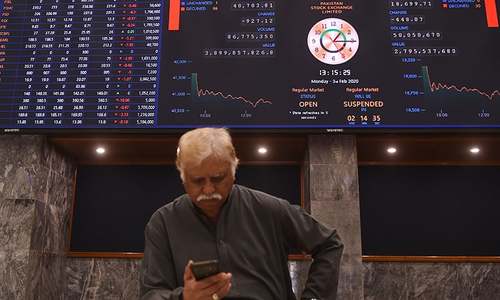Pakistan's deficit under microscope as IMF review begins

Pakistan will come under pressure to convince the International Monetary Fund (IMF) it can bring down a ballooning fiscal deficit, as a review on the future course of its $6 billion financial aid programme gets under way.
An IMF team sent to review benchmarks set as part of the deal began formal meetings in Islamabad on Tuesday that will continue until February 13, a top finance ministry official said.
The Fund agreed to the three-year rescue package last year — its 13th bailout programme for Pakistan since the late 1980s — as the country wrestles with a balance of payments crisis.
Even after cutting its revenue collection target, Pakistan is facing a shortfall of Rs387 billion.
By the end of the fiscal year in June, that could have virtually doubled, former finance secretary Waqar Masood — who was instrumental in past negotiations with the IMF, told Reuters on Tuesday.
"That would be alarmingly high, making the review potentially very critical given the already hard-pressed state of the economy. So the mission would ask for details of measures to narrow the shortfall," he said.
With energy and gas prices already high and citizens facing double digit food-led inflation and interest rates, the government might be forced into introducing news taxes via a mini budget.
“You might be hearing already that the government has no [other] option,” he said, though that would be politically risky.
The IMF board met in December to approve a second aid tranche of $450 million after the mission's team completed its first review in November, saying the fiscal deficit was narrowing.
The IMF has estimated that Pakistan's economy would slow down to 2.4 per cent growth in 2020 and since the team's arrival the local stock market has fallen.
The outcome of the talks was a major uncertainty that was weighing on investors' minds, Mohammad Sohail, head of Topline Securities, said. “I think this will continue in the market for the time in which the IMF team are deliberating in Pakistan,” he said.
He and Masood both said Pakistan might ask the mission to grant some form of waiver of the aid programme's conditions.













































